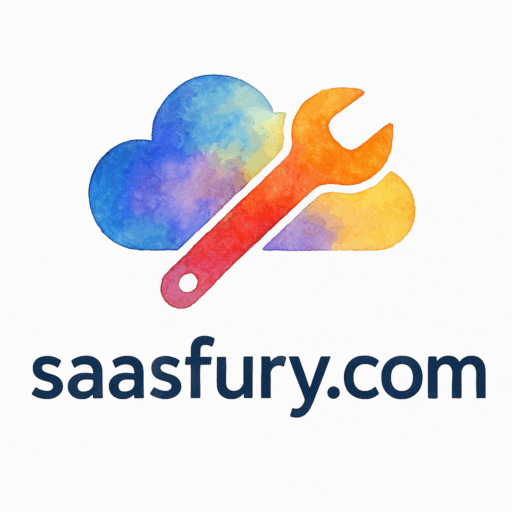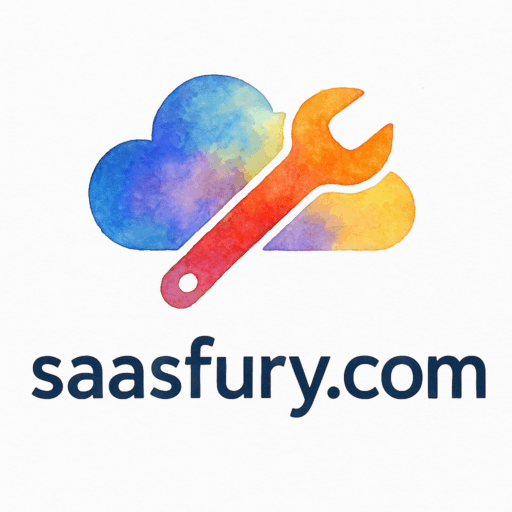Introduction
In the fast-paced digital marketing world, trainers need more than just theories and strategies—they need powerful tools to bring lessons to life. That’s where SaaS tool recommendations for digital marketing trainers come in. With the right platforms, trainers can simplify complex topics, keep students engaged, and ensure real-world readiness.
Why SaaS Tools Are Essential for Digital Marketing Trainers
The Rise of SaaS in Education and Marketing
SaaS (Software as a Service) has become the backbone of modern businesses, and education is no exception. For digital marketing trainers, SaaS tools provide cloud-based, always-available solutions that make teaching flexible, engaging, and highly practical. You’ll find industries from online education to healthcare leveraging SaaS to improve operations.

Benefits of SaaS Tools in Training Programs
Instead of simply teaching concepts, trainers can now demonstrate them live—showing how campaigns are built, tracked, and optimized in real-time. SaaS tools help:
- Improve hands-on learning.
- Provide scalable access to resources.
- Give students exposure to industry-standard platforms.
Key Factors to Consider Before Choosing SaaS Tools
Ease of Use and Accessibility
A tool is only as good as its user-friendliness. Trainers need platforms that are intuitive for both themselves and their students.
Cost-Effectiveness and Scalability
Some SaaS platforms can get pricey. Always check whether they offer educational discounts, free trials, or team plans.
Integration with Existing Tools
The best SaaS tools integrate seamlessly with CRMs, analytics dashboards, or e-commerce solutions.
Data Security and Compliance
With personal and campaign data being shared, trainers must ensure that tools comply with GDPR and other data-protection regulations.
6 SaaS Tool Recommendations for Digital Marketing Trainers
1. HubSpot – For Inbound Marketing & CRM
Features Trainers Love
- CRM with free access.
- Marketing automation workflows.
- Detailed dashboards and analytics.
Why It’s Great for Training Sessions
HubSpot lets trainers demonstrate inbound marketing campaigns from start to finish—making it easier for students to understand lead generation, nurturing, and customer relationship management. It’s especially valuable for those in consulting and professional services.
2. Canva – For Creative Content Design
Features That Support Learning
- Thousands of templates for ads, posts, and presentations.
- Easy drag-and-drop editor.
- Collaboration tools for group projects.
Real-World Training Applications
Trainers can assign students projects like creating social media ads or infographics. Since Canva is also a staple in graphic design and creative industries, it gives learners valuable cross-discipline skills.
3. SEMrush – For SEO and Competitive Analysis
Key Features for Digital Marketing Students
- Keyword research and tracking.
- Competitor analysis.
- Site audits for technical SEO.
Why Trainers Rely on SEMrush
SEMrush allows trainers to turn SEO theory into practice. Students can run audits, analyze rankings, and experiment with strategies that professionals actually use in e-commerce and marketing agencies.
4. Hootsuite – For Social Media Management
Features That Enhance Training
- Schedule posts across multiple platforms.
- Monitor engagement and mentions.
- Generate social media reports.
Teaching Social Media Analytics
With Hootsuite, trainers can walk students through scheduling campaigns, analyzing reach, and learning how to adapt strategies. This is a must-have for trainers teaching omnichannel and scheduling strategies.
5. Google Analytics – For Data-Driven Marketing
Essential Features for Marketing Education
- Traffic reports by source, device, and location.
- Conversion tracking.
- Custom dashboards.
Hands-On Learning Possibilities
By setting up demo accounts, trainers can let students dive into real traffic data. This makes analytics training more relevant for careers in retail software and small businesses.
6. Mailchimp – For Email Marketing Campaigns
Features That Make Training Easy
- Email templates.
- Automation sequences.
- A/B testing.
Practical Classroom Examples
Trainers can show students how to build subscriber lists, segment audiences, and test campaigns—skills highly valuable in hospitality, restaurants, and retail.
How SaaS Tools Transform Digital Marketing Training
Enhancing Engagement Through Interactivity
Students learn better when they can experiment. SaaS tools allow trainers to turn lessons into interactive workshops instead of one-way lectures.
Preparing Students for Real-World Scenarios
Exposure to platforms like SEMrush, HubSpot, and Google Analytics ensures students graduate with hands-on experience that employers in business tools and agencies actually demand.
Challenges Digital Marketing Trainers Face With SaaS Tools
Overcoming the Learning Curve
Some students may feel overwhelmed by new tools. Trainers need to break down features step by step.
Balancing Free vs. Paid Versions
Most SaaS tools have limited free versions. Trainers must decide whether to upgrade or make do with basic access.
Best Practices for Using SaaS Tools in Training
Start with Demos and Practice Sessions
Live demonstrations combined with guided practice sessions make learning smoother.
Encourage Collaborative Projects
Students can work in groups on mock campaigns using SaaS tools, replicating agency-style teamwork.
Track Progress with Analytics
Trainers should leverage reporting features to measure student engagement and understanding.
Conclusion
Digital marketing training is no longer about slideshows and theory—it’s about practical, hands-on experiences. By leveraging these 6 SaaS tool recommendations for digital marketing trainers, educators can make their sessions more interactive, insightful, and career-ready. From SEO to email marketing, these tools bridge the gap between learning and doing—equipping students with real-world skills that make them industry-ready.
FAQs
1. What are the best SaaS tools for beginner-level digital marketing training?
Canva, Mailchimp, and Google Analytics are great starting points for beginners.
2. Do SaaS tools offer free versions for trainers and students?
Yes, most of them (like HubSpot and Canva) have free tiers with enough features for classroom use.
3. How can trainers integrate SaaS tools into online classes?
By using screen-sharing, project-based assignments, and collaborative features like shared dashboards.
4. Are SaaS tools suitable for small training institutes with limited budgets?
Absolutely! Many SaaS tools scale with your needs and start with affordable or free plans.
5. Which SaaS tool is best for teaching SEO?
SEMrush is one of the most comprehensive platforms for SEO and e-commerce training.
6. Do SaaS tools require technical expertise to use?
Most modern SaaS platforms are designed with beginners in mind and offer user-friendly interfaces.
7. How do SaaS tools prepare students for real-world marketing jobs?
They simulate the exact platforms used in marketing agencies and businesses, giving students direct exposure to industry practices.

